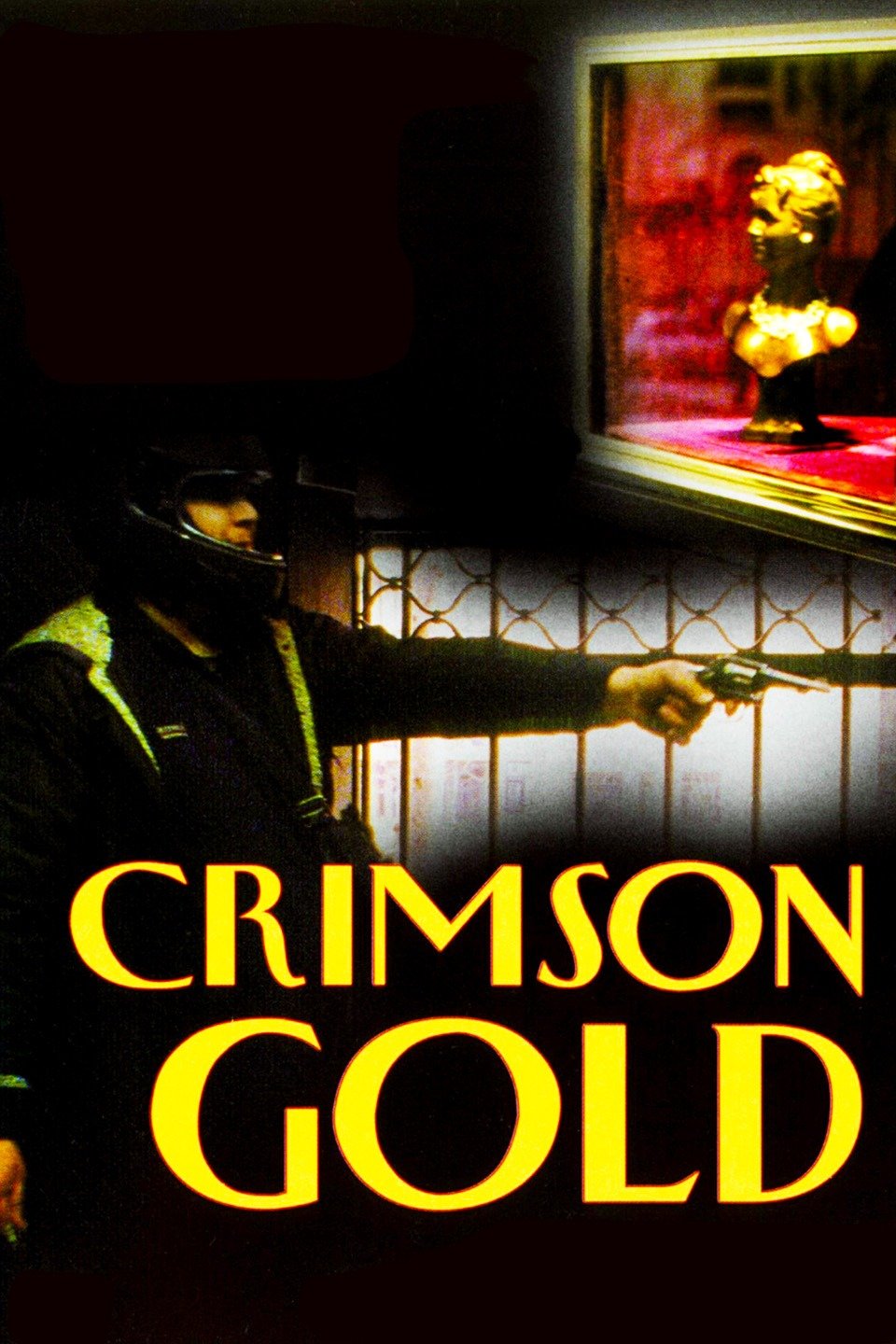
CRIMSON GOLD (Talaye sorkh)
(director: Jafar Panahi; screenwriter: Abbas Kiarostami; cinematographer: Hussein Jafarian; editor: Jafar Panahi; music: Peyman Yazdanian; cast: Hossain Emadeddin (Hussein), Kamyar Sheisi (Ali), Shahram Vaziri (The Jeweler), Pourang Nakhael (Pourang), Azita Rayeji (The Bride); Runtime: 95; MPAA Rating: NR; producer: Jafar Panahi ; Wellspring; 2003-Iran-in Farsi with English subtitles)
“Quietly brilliant psychological drama.”
Reviewed by Dennis Schwartz
The neo-realism film is built around an elderly man’s cynical line directed at two naive younger men whom he spots handling a stolen purse: “If you want to arrest a thief, you would have to arrest the world.”
Jafar Panahi (“The White Balloon”/”The Circle”) directs this quietly brilliant psychological drama without a false note. The sharply observant screenplay about the class divide in Iran is provided by Jafar’s mentor, one of the world’s greatest directors, Abbas Kiarostami (he also penned Jafar’s The White Balloon in 2000). It’s a poignant humanistic drama about one of Iran’s many forgotten heroes from the Iraq war, who has never fully recovered from the psychological and physical injuries sustained during the conflict. The film magnificently makes use of long pregnant pauses, the hero’s deadpan expressions and long takes of the bustling city while the protagonist calmy maneuvers on his motorbike through the heavy traffic and the lines that divide the rich and poor neighborhoods of Tehran. These long silences give the viewer time to digest the ongoing social conflicts in modern Tehran and to ascertain the hurt felt by the suffering gentle giant. The film was inspired by a recent story in the news about a pizza man killing a jeweler and committing suicide during a robbery. The Iranian authorities were upset with Jafar for exposing the failures of the revolution to overcome class differences as promised and banned the film, labeling him a tool of the Americans. Strangely, Jafar is also not welcomed in America. He has been stopped from entering this country and subject to embarrassing questions about terrorism because of his homeland.
Crimson Gold opens with a jewelry store robbery in progress that turns sour. The thief, an imposing pizza delivery man named Hussein (Hossain Emadeddin–a real pizza delivery man and a treated paranoid schizophrenic), ends up killing the jeweler and himself after becoming trapped inside the store when the alarm is tripped by a customer. His hapless accomplice and fellow delivery man Ali (Kamyar Sheisi) is immediately surrounded by the frenzied crowd. The film uses a flashback to chart the events of the past few days that led up to the tragedy.
A much more sedate and pensive Hussein is now seen sitting in a coffee shop with his future brother-in-law, the talkative Ali, who empties the contents of a purse he apparently snatched, on the coffee table. Of interest to both men is a woman’s damaged gold wedding ring and a receipt for an expensive Italian necklace in a swank jewelry store on the other side of the tracks. The two slovenly dressed men ride on Hussein’s motorbike to check out the jewelry store, but are rebuffed by the snobbish owner Mr. Vasari (Shahram Vaziri) for not appearing good enough to be his customers. This rejection leaves Hussein upset why he is looked upon as an inferior, especially after he bravely served in the military during the war.
The next day Hussein dresses in a suit and a tie and returns unrecognized to the store with Ali and Ali’s sister (Azita Rayeji), who has been beaten down in life (as are most women under the fundamentalist regime) and is always apologizing to Hussein for possibly making him angry. Even though Hussein comes properly dressed and with enough money to purchase a modest necklace and earrings for his fiancée as a wedding gift, the owner again treats him as a second-class citizen and directs his business to the poorer section of town.
During the course of Hussein’s long working day, he delivers pizzas to a posh apartment house being raided by soldiers because the occupants are enjoying themselves at a party and are drinking booze. Later on Hussein delivers pizza to a lonely wealthy man Pourang (Pourang Nakhael), who returned without his folks to the homeland after living in the States and lives in his parent’s abandoned lavish apartment. He welcomes the delivery man into his huge apartment and pleads with Hussein to listen to him after feeling depressed because his girlfriend and her female friend abruptly left his apartment. Pourang repeatedly whines that Tehran is “a city of lunatics.” The proud Hussein’s slow rage is building up inside him when he sees how the other half lives and he has so little. By now we understand why he’s a ticking time bomb when he enters the jewelry store and we get a clearer picture of the social divisions plaguing Iran. Ironically, Hussein is never once recognized by the jeweler–which seems to be the message that Panahi is sending about Iran’s forgotten common men who once believed in the cause of the revolution.
REVIEWED ON 7/29/2004 GRADE: A